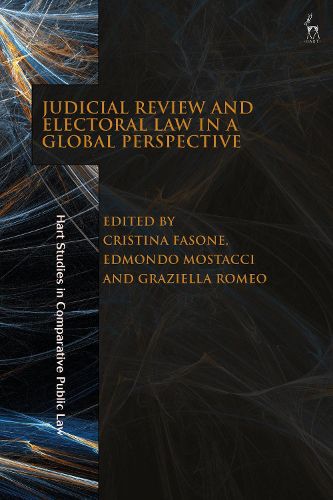Readings Newsletter
Become a Readings Member to make your shopping experience even easier.
Sign in or sign up for free!
You’re not far away from qualifying for FREE standard shipping within Australia
You’ve qualified for FREE standard shipping within Australia
The cart is loading…






This book fills a gap in constitutional law by examining the global trend towards the substantive constitutional adjudication of electoral legislation. It explores the premises on which this judicial scrutiny is grounded, seeks to explain the trend, and examines its consequences for representative democracy.
The book offers a comparative analysis of the issue, investigating how the exchange of models and arguments among judges has catalysed the progressive departure from a traditionally deferential approach to electoral norms-an approach that still persists in a few jurisdictions.
To accomplish this, the book delves into the democratic foundations of electoral systems and their evolution. It also explores the methodological choices that constitutional judges face when dealing with electoral legislation. This groundwork sets the stage for an in-depth review of case law in more than fifteen legal systems spanning North and South America, Africa, Asia, Oceania, and Europe. The objective is to identify the underlying concept of democracy that courts aim to promote. The authors critically discuss the varying ideas of democracy evident in each jurisdiction, including the use of constitutional borrowing, and they analyse the effects of judgments on the relationship between courts, representative institutions, and voters.
Given its global scope, the combination of theoretical and practical approaches, and the comprehensive comparative assessment it provides, this work is of interest to academics in the fields of law, political science, and philosophy. It is also relevant for policymakers and judges in constitutional democracies across continents.
$9.00 standard shipping within Australia
FREE standard shipping within Australia for orders over $100.00
Express & International shipping calculated at checkout
This book fills a gap in constitutional law by examining the global trend towards the substantive constitutional adjudication of electoral legislation. It explores the premises on which this judicial scrutiny is grounded, seeks to explain the trend, and examines its consequences for representative democracy.
The book offers a comparative analysis of the issue, investigating how the exchange of models and arguments among judges has catalysed the progressive departure from a traditionally deferential approach to electoral norms-an approach that still persists in a few jurisdictions.
To accomplish this, the book delves into the democratic foundations of electoral systems and their evolution. It also explores the methodological choices that constitutional judges face when dealing with electoral legislation. This groundwork sets the stage for an in-depth review of case law in more than fifteen legal systems spanning North and South America, Africa, Asia, Oceania, and Europe. The objective is to identify the underlying concept of democracy that courts aim to promote. The authors critically discuss the varying ideas of democracy evident in each jurisdiction, including the use of constitutional borrowing, and they analyse the effects of judgments on the relationship between courts, representative institutions, and voters.
Given its global scope, the combination of theoretical and practical approaches, and the comprehensive comparative assessment it provides, this work is of interest to academics in the fields of law, political science, and philosophy. It is also relevant for policymakers and judges in constitutional democracies across continents.